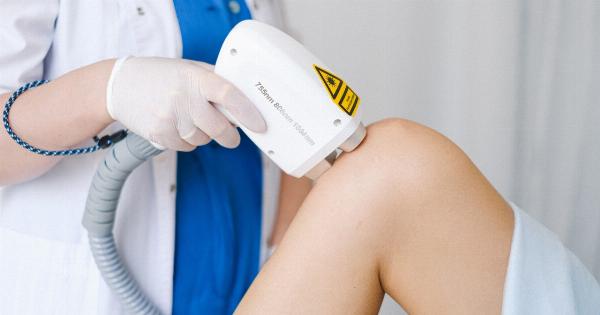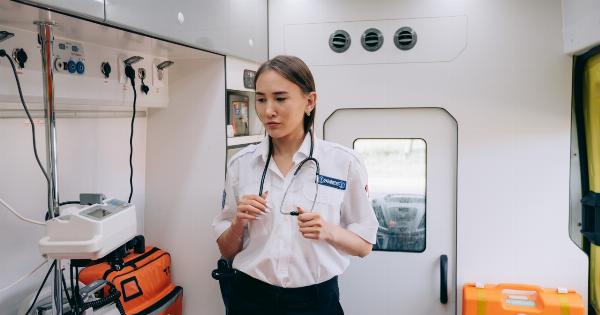Tattoos have become incredibly popular in recent years, with millions of people getting inked as a form of self-expression.
However, it’s crucial for tattooed individuals to understand the potential risks and the importance of medical dermatology and overall health maintenance. In this article, we will explore what every tattooed person should know about medical dermatology and maintaining their health.
Understanding the Basics of Tattooing
Before delving into the medical aspects, it’s essential to grasp the basics of tattooing. Tattooing involves the insertion of ink into the dermis layer of the skin using needles.
The needles puncture the skin, depositing ink and creating a permanent design. Tattooing can cause various physiological and immunological responses in the body, necessitating attention to medical dermatology.
Choosing a Reliable and Reputable Tattoo Artist
When getting a tattoo, it’s crucial to select a reliable and reputable tattoo artist. Inadequate sterilization techniques, contaminated ink, or unhygienic practices can lead to severe health complications.
Research the artist’s qualifications, reviews, and inspect their studio to ensure cleanliness and proper adherence to health regulations.
Risks and Complications Associated with Tattoos
While tattoos can be stunning pieces of art, it’s important to be aware of the potential risks and complications they can pose:.
1. Allergic Reactions
Some individuals may develop allergic reactions to the pigments used in tattoo ink. These reactions can cause itching, redness, swelling, or even more severe symptoms such as hives or difficulty breathing.
It’s important to consult a medical dermatologist if you experience any allergic reactions.
2. Infections
Improperly sterilized equipment or contaminated ink can lead to infections. Symptoms of tattoo-related infections include prolonged redness, pus, fever, or pain at the tattoo site. Infections should be treated promptly to prevent further complications.
3. Skin Conditions
Skin conditions like psoriasis or eczema can be exacerbated by tattooing. It’s crucial to inform your tattoo artist about any pre-existing skin conditions to avoid potential flare-ups or complications.
4. MRI Interference
Tattoos may contain metallic substances that can cause interference with Magnetic Resonance Imaging (MRI) scans. Inform your healthcare provider about your tattoos prior to undergoing an MRI to prevent any complications or distorted imaging.
5. Tattoo Removal Challenges
If you decide to remove a tattoo, it’s essential to understand that the process can be challenging and may not always result in complete removal, particularly for certain ink colors.
Consult with a medical dermatologist experienced in tattoo removal before pursuing any removal procedures.
Importance of Proper Aftercare
Proper aftercare is vital for maintaining the health and appearance of your tattoo. Follow these essential aftercare steps:.
1. Keep the Tattoo Clean
Gently wash the tattooed area with mild, fragrance-free soap and water. Avoid scrubbing or using abrasive materials.
2. Moisturize the Tattoo
Regularly apply a thin layer of fragrance-free moisturizer to keep the tattooed skin hydrated and prevent excessive dryness.
3. Protect from Sun Exposure
Shield your tattoo from direct sunlight, as ultraviolet (UV) rays can fade the ink and damage the skin. Apply sunscreen with a high SPF to the tattooed area when exposed to the sun.
4. Avoid Swimming
Avoid swimming, hot tubs, or saunas until the tattoo is fully healed to prevent bacterial infections.
Signs to Watch for and When to Consult a Medical Dermatologist
While proper aftercare reduces the risk of complications, it’s essential to be vigilant and consult a medical dermatologist if you notice any of the following:.
1. Infection Signs
If you experience prolonged redness, swelling, pus, fever, or increasing pain, it may indicate an infection and requires medical attention.
2. Allergic Reaction Symptoms
Any signs of an allergic reaction, such as severe itching, hives, rash, or difficulty breathing, should be evaluated by a medical professional immediately.
3. Skin Abnormalities
If you notice abnormal changes in the tattooed skin, such as excessive scarring, raised or thickened areas, or changes in color or texture, consult a medical dermatologist for evaluation.
The Role of a Medical Dermatologist
A medical dermatologist plays a crucial role in the care and management of tattooed skin. They can provide:.
1. Allergy Testing
A medical dermatologist can perform tests to identify potential allergens and help manage allergic reactions associated with tattoo pigments.
2. Infection Treatment
If an infection occurs, a medical dermatologist can prescribe appropriate antibiotics or antifungal medications to treat the infection effectively.
3. Tattoo Modification or Removal
Medical dermatologists experienced in tattoo modification or removal techniques can help individuals who wish to alter or eliminate their tattoos, providing personalized plans and assessing the feasibility and potential outcomes.
Conclusion
While tattoos can be incredible forms of self-expression, it’s vital to understand the potential risks and how medical dermatology and overall health maintenance play a crucial role in tattoo care.
By being informed about the risks, choosing reliable artists, following proper aftercare, and consulting a medical dermatologist when necessary, individuals can enjoy both the beauty of their tattoos and their overall health.






























